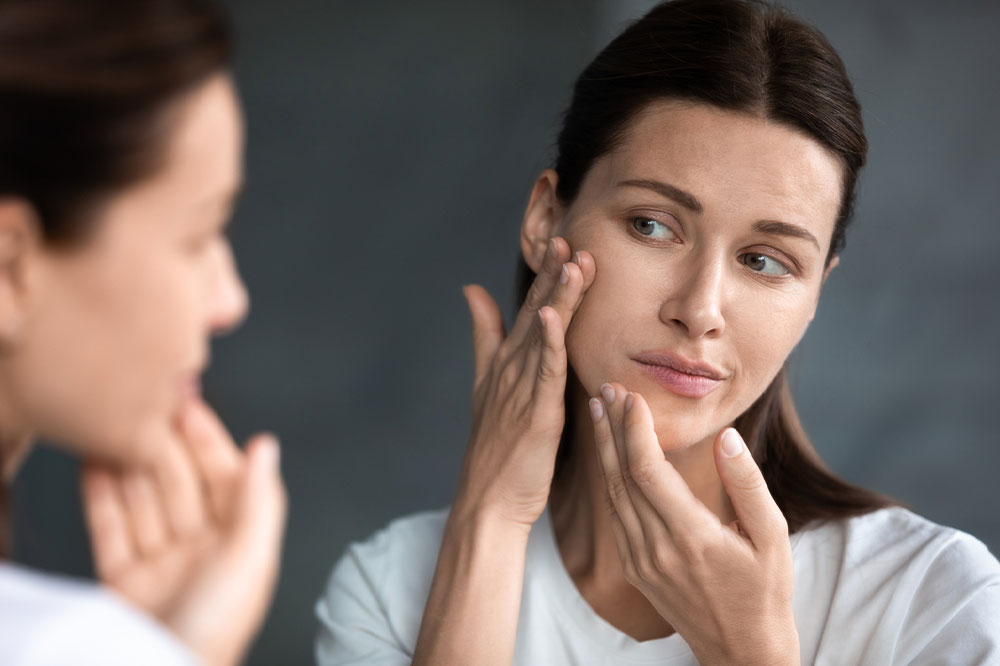Avoid these 5 skin care mistakes to prevent premature aging

The skin is one of the largest organs in the body, consisting of many layers stretching out a massive twenty square feet. From head to toe, billions of skin cells are being destroyed and created naturally as part of the body’s daily functions. But you may unknowingly make several cosmetic mistakes during the day and night that can trigger problems linked to premature aging. Here are the top five to avoid at all costs.
Not using sunscreen
That little dab of SPF15 and SPF30 protection is necessary if you live in tropical climates or places of extreme heat. Mainly because direct exposure to UV rays is cited as one of the main reasons for premature aging. Repeated exposure can lead to rough, scaly skin, excess pigmentation, and visible wrinkles that develop as the skin loses its hydration. In fact, experts recommend using sunscreen while going out, even in the colder months, as the snow and chilly weather can trap and reflect more sunlight, thus increasing exposure. It is better to use mineral-based sunscreens that contain active ingredients to counter the inflammation and oxidative stress caused by UV exposure. Additionally, a tinted moisturizer sunscreen can help the skin get a beautiful glow. Being lighter than full-coverage foundations, tiny amounts of tinted sunscreen can even out the skin tone. The multifunctional product also provides hydration with ingredients like aloe vera and hyaluronic acid while protecting the skin from sun damage. There are various tinted face and body moisturizers for dry, sensitive, and oily skin. Brands like bareMinerals, IT Cosmetics, and EltaMD develop these for different complexions. Another brand, Undefined, creates tinted face moisturizers with SPF 50 that are effective as sunscreens.
Using cosmetics without knowledge
Different types of cosmetic products are designed for different skin care purposes. Using or applying at the wrong time can have adverse skin problems. Also, you need to consider your skin type and assess its chemical composition before applying it daily. Experts recommend the patch test to try new products and see if the skin has any adverse reactions. It is better to switch to cosmetics that are free of artificial preservatives, parabens, metals, and even perfumes that can trigger an allergic reaction. If you have also recently gotten a tattoo, your skin will still be healing from the process of machine-inking. Experts suggest using saran wrap to avoid the skin directly touching any other surface while sleeping and advice using special antibacterial tattoo wipes to prevent a skin infection. Cleaning the area frequently and limiting exposure to common allergens or pollutants are also important steps for proper tattoo care at night.
Improper nutrition and lifestyle
Lack of proper nutrition and poor lifestyle choices are often cited as one of the major causes of skin problems. For example, an excess sugar intake can cause premature aging as skin cells begin to deteriorate due to active cell damage. Sugary foods and beverages can trigger the breakdown of collagen and elastin. Without these compounds, the skin loses its texture and quality resulting in fine lines and wrinkles forming prematurely. Also, lack of sleep is one of the most harmful and often undetected triggers of skin problems. Ever heard the term beauty sleep? Well, there is a scientific reason behind it. Skin cells are constantly shedding and being represented, and this process is at its peak when you are sleeping. Not getting adequate rest can slow down this process affecting the skin’s hydration and regeneration levels. Extended periods of sleeplessness can also lead to skin inflammation that causes various problems.
Makeup mistakes
Sleeping with makeup on is a cardinal sin. This action can trigger premature skin problems that lead to early aging. Also, simply wiping these layers off with wet tissues or face wipes will not help. Makeup left overnight can clog the pores and cause the skin to dry out. Improper pore care is one of the primary triggers of acne breakout as the oil, pus, and debris starts collecting under the skin. Simply covering these breakouts with more layers will only further cause the skin to breakout and scar. Multiple layers left overnight also increase the risk of oxidative damage to healthy skin cells. So, at all costs, always remove makeup and moisturize well before bed.
Forgetting about the lower neck and hands
Skin care is not limited to just the face. Many people forget that signs of aging can also show in the neck region and on the hands. Even neglecting the décolleté (lower neck and chest) region can unknowingly trigger spots of discoloration because of the inconsistent skincare routine. Pay attention to these areas, as you can easily miss these spots. Also, try and maintain consistency in the routine, as constantly switching products or changing habits can also wreak havoc on the skin’s natural ability to heal and restore cells.


